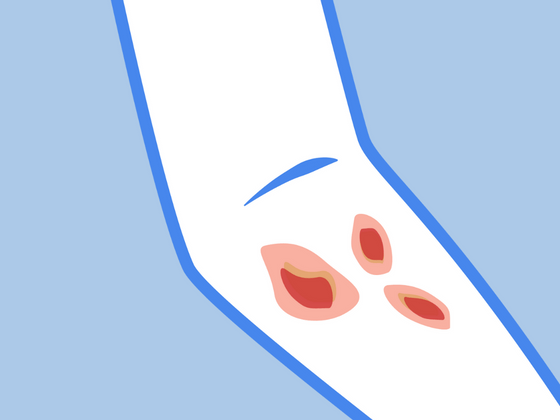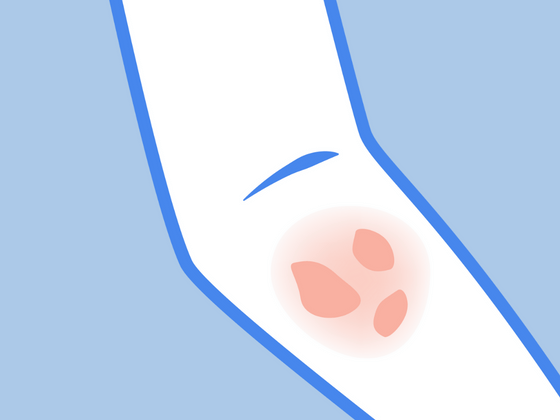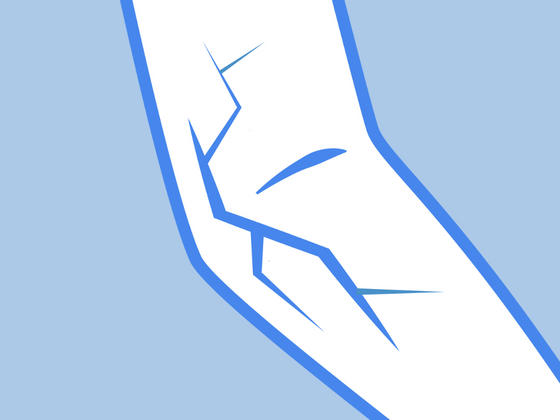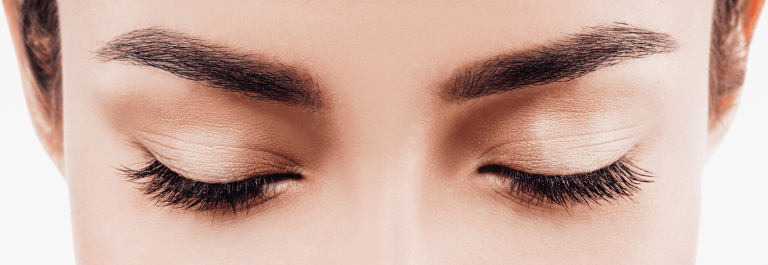Are you dealing with a latex or spandex allergy? We are all exposed to natural rubber latex in daily life and for most people, this doesn’t cause any issues. For people with sensitive skin or eczema, however, contact with latex can trigger an allergic reaction. Using gentle products like eczema cream can help soothe irritated skin. This can make it difficult to wear certain clothing, especially bras or underwear.
In this post, we’ll share some helpful information on navigating a latex allergy.
Please keep in mind that although what we discuss in this post can relieve eczema, we are in no way medical professionals. If you’re experiencing severe eczema symptoms like an infection, it is best to seek medical advice immediately.
What is a Latex Allergy?
A latex allergy results when your body mistakes latex for a harmful substance and the immune system reacts accordingly.
Latex itself comes from the rubber tree and contains a mixture of water, sugar, and proteins. It is found in a variety of everyday products, such as medical gloves, shoes, balloons, tires, underwear leg and waistbands, rubber toys, and condoms.
What are the Symptoms of a Latex Allergy?
Symptoms of a latex allergy can develop within minutes to an hour after contact with the rubber item. They can range from mild to severe depending on how sensitive you are to latex and the amount of latex you touch.
Mild symptoms may include itchiness, a red rash, or hives. In more severe cases, you may experience sneezing, running nose, itchy or watery eyes, a scratchy throat, and difficulty breathing. For soothing relief, natural moisturizers like beef tallow cream can help calm irritated skin.
Latex and Eczema
It’s not uncommon for people with eczema to experience a negative reaction to latex. For example, irritant contact dermatitis is one of the different types of latex reactions. It typically develops after repeated exposure to chemicals found in latex gloves. A reaction usually occurs 12-24 hours after contact and can include itching, burning, scaling, and dryness.
Another type of latex reaction is allergic contact dermatitis. Typically, the reaction is more severe than irritant contact dermatitis, as it spreads to more parts of the body and lasts longer. Symptoms may appear 1-4 days after you’ve come into contact with latex.
Who is at Risk?
People who wear rubber latex gloves regularly for long periods of time are more likely to develop a latex allergy.
These include healthcare workers, mechanics, hairdressers, and cleaners. They may experience increased risk if they already have an allergic condition such as a food allergy, asthma, or hay fever, or if they have atopic eczema. Special care should be taken with children, and gentle eczema cream for babies can help manage sensitive skin reactions.
Latex-Free Alternatives
Fortunately, there are latex-free alternatives available to prevent your skin from coming into contact with latex. Here are some of our favorites:
Protecting your Hands
Many jobs require the use of latex gloves to protect the hands. As you can imagine, this can cause more harm than good for those who are dealing with a latex allergy.
A great way to protect the hands is by wearing a skin-friendly pair of gloves underneath the latex gloves. We recommend these 100% Organic Cotton Gloves for Adults. They’re made with organic cotton and are extremely soft to the touch.
Latex-Free Bras
If you’re looking for a hypoallergenic bra for eczema that is made without latex, nickel, or nylon, check out this Remedywear™ Bra. It’s made with a blend of TENCEL and zinc-oxide to provide basic support without prompting irritation. Made with sensitive skin in mind, it even features a latex free elastic band at the bra line.
Another great option is this 100% Organic Cotton Bra Liner. Completely hypoallergenic, it is latex free, spandex free and chemical free. Your sensitive skin will love how soft and soothing the 100% cotton material is.
Finally, you can try our 100% Organic Cotton Front Closure Bra. It features spandex and latex free elastic bands covered with cotton to ensure ultimate comfort. Providing all day support, it’s the perfect choice for those with a latex allergy.
References:
https://acaai.org/allergies/allergic-conditions/latex-allergy/








